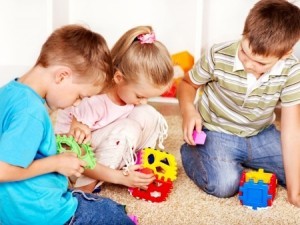Children with autism show significant improvements in social skills when they are given the opportunity to access imaginative play alongside typically developing peers, according to a new study.
 A team of researchers at San Francisco State University measured the benefits of a programme called Integrated Play Groups, where children engage in child-led creative play. An adult initiates the play, but does not direct it. This is a departure for children with autism, who are traditionally offered highly structured programmes for teaching social skills.
A team of researchers at San Francisco State University measured the benefits of a programme called Integrated Play Groups, where children engage in child-led creative play. An adult initiates the play, but does not direct it. This is a departure for children with autism, who are traditionally offered highly structured programmes for teaching social skills.
Dr Pamela Wolfberg, who developed the programme over 10 years and is co-author of the study, said the aim was to help move children with autism from a repetitive, solitary pattern of play to one that involves more interaction and imagination. She said: “This flips around the idea that kids with autism are incapable of socializing or incapable of pretending. They have the same innate drive to participate with peers and engage in playful experiences.”
Altogether, 48 children with autism were involved in the study. They ranged between the ages of five and 10 and between those severely impacted by the condition to those who were mildly affected. The study also included 144 age-matched children reported to have typical development. Play took place after school twice a week over a three-month period and lasted 40 minutes.
The study was funded by the US-based Autism Speaks charity. Lucia Murillo, its assistant director of education research, said the results indicate that the Integrated Play Group model is a promising treatment to address social and symbolic play delays in young children with autism. She added: “Of particular importance is that this model promotes a more inclusive mode of learning that could be beneficial if incorporated into a regular classroom setting.”
According to Dr Wolfberg, by the end of the 12-week period the children with autism showed overall improvement in their ability to engage in mutual pretend play and to interact with children they did not know.
Published: 4 November 2014















